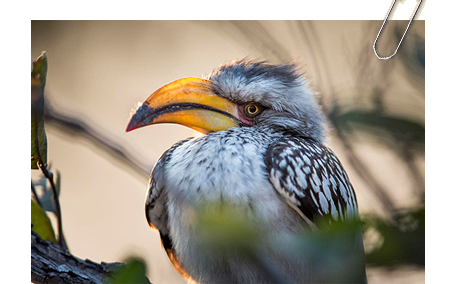Conserving our birds in Ikaba area – Zambezi Region
Ikaba is an emerging conservancy found in the eastern floodplain of the mighty Zambezi region, neighbouring Nsundwa, Namiyundu, Mbalasinte and Kasika areas.
Due to the desire of the community and the local traditional authority, locally known as the Khuta, to have the area gazetted into a conservancy, the local traditional leaders approached IRDNC to support them in recruiting volunteer community game guards toto monitor, observe and report illegal wildlife activities while they are still in the process of gazetting the area.
After securing funds, four game guards (three men and one woman) were recruited after passing a written test administered by IRDNC and the headmen who know the qualities of the applicants. The game guards began their official duties in late 2019.
There is a nesting site of water birds in the area which hosts thousands of birds coming to lay their eggs each year. This year, 11 species of water birds were counted having nests in the area. They were the great white pelican, lesser flamingo, african darter, African spoonbill, African sacred ibis, hadida ibis, grey heron, great egret, little egret, marabou stock, and hamerkop.
The area had been a hotspot of poaching for some foreign nationals and locals every year. The poachers would enter the nesting site, catch chicks that cannot fly, catch the mothers who are unaware and break their wings, use sticks and any other local tools they can use to kill the birds on a large scale for their meat. It is believed that some used to get eggs and traffic them to the DRC where there is a market for the blue eggs which some of these birds lay. Furthermore, the birds were losing their habitat due to deforestation which was high in the area. People were entering the nesting site to cut down trees where the birds are nesting for firewood and poles for building structures without putting into consideration that they are destroying the habitat of these birds. In the process, eggs and chicks would be destroyed and lose their lives.
When the game guards started their duties, they began to patrol the area and found a lot of rotten birds and eggs that were left behind by poachers who were unable to carry them. One day during their patrols they caught local poachers carrying over 50 birds, to a point where they were unable to carry some birds and decided to leave them behind. The poachers were reported to the respective authorities.
In early September, IRDNC and Ikaba had a joint anti-poaching patrol camp. The camp was set up at the entrance of the nesting site where several separate groups of bird poachers were apprehended. For the first time, local people are realising the potential conservation value of their birdlife, and are more aware of the need to protect it.
The move of IRDNC and community rangers to address the crisis facing local waterfowl populations led to the Ministry of Environment, Forestry and Tourism to work with IRDNC’s team to host the National Broadcasting Corporation to go and film the breeding site, which was aired on national news, to further increase local awareness.
The partnership between IRDNC, traditional leaders and community rangers to protect bird nesting sites has led to the closure of a known cattle post that had previously been used by poachers, and the increased presence in the area has saved many lives of birds and many nesting trees.

- Southern yellow-billed hornbill



